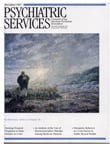Schizophrenia From a Neurocognitive Perspective: Probing the Impenetrable Darkness
In this text, Michael Green sets out to present the concepts and challenges of a neurocognitive understanding of schizophrenia, drawn from the traditional schools of clinical neuropsychology and experimental psychology, to a wide scientific audience.
The nine chapters in the text review the methods for studying the neurodevelopmental model (epidemiological, neurohistological, archival-observational, and through markers of abnormal neurodevelopment); the historical understanding of attentional dysfunction in schizophrenia and, later, of specific neuropsychological and experimental psychology models; and specific types of neucognitive deficits and attempts to integrate this information. Also covered are neurocognitive indicators of vulnerability to schizophrenia in patients and relatives; the relationship between neurocognition and symtomatology; the effects of antipsychotic and anticholinergic medication on neurocognition; neurocognition and structural and functional neuroimaging; the correlation of neurocognition and outcome; and interventions for neurocognitive deficits.
I found the book primarily to have major strengths, along with a few minor drawbacks. The text provided me with a wealth of information on a focused topic that I knew little about. With a background in neuropsychiatry, I thought reading this book would be a relatively straightforward proceeding; it wasn't. I found myself looking up various psychological terms and tests. However, that process was beneficial, and it added to the gain from reviewing the text.
For clinicians, reading Schizophrenia From a Neurocognitive Perspective may translate into a heightened understanding of patients with schizophrenia, which equates with improved clinical care. Each chapter presents key findings from a wide variety of studies, followed in some chapters by an attempt to integrate this information into theories or models of understanding. The end result is a foundation on which to begin to understand the neurocognitive functions and deficits of people with schizophrenia. Each chapter is to the point and contains an essential amount of information without becoming labored or unwieldy with data.
Certain sections of the text cover areas that I felt were peripheral to my understanding of, and work with, patients with schizophrenia. However, others in the field may find these "peripheral" areas to be important. If the wide scientific audience the author seeks were to follow a bell-shaped curve, this text would be appropriate for most of the readers under the curve, with the possible exception of clinicians with a limited background in psychology and limited clinical experience with schizophrenic patients.
Dr. Holzer is assistant professor of psychiatry at the University of Massachusetts Medical School in Worcester and is on the staff at Medfield (Mass.) State Hospital.



